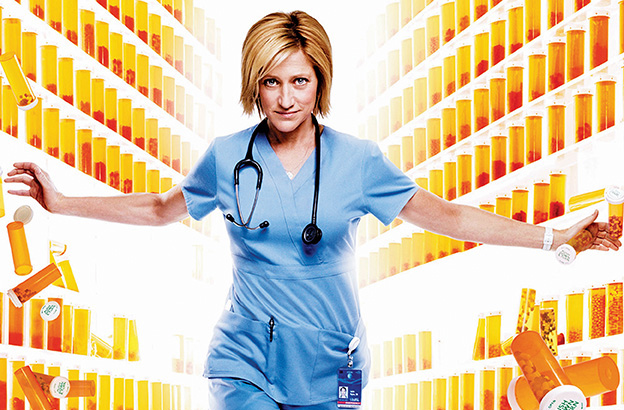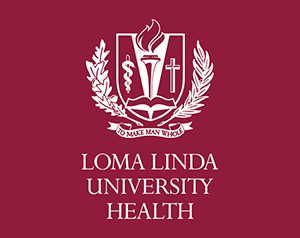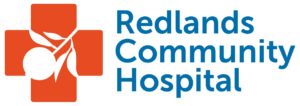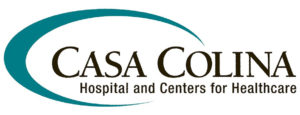Movie & TV Nurses
Looking Back at “Nurse Jackie”
A former nurse addict and current recovery coach takes a fresh look at the controversial 2009–2015 Showtime series

“Nurse Jackie,” a medical comedy-drama about a drug-addicted nurse in the chaotic thrum of a New York City emergency department, premiered on Showtime in June 2009.
For seven seasons, the series followed protagonist Jackie Peyton, married mother of two and accomplished emergency department nurse (skillfully portrayed by Edie Falco of “Sopranos” fame), as she cycled through addiction, sobriety and relapse—again and again.
Widespread Outrage
The show had all the components of a riveting drama: Jackie’s failing marriage; her scandalous affair with a pharmacist who moonlights as her drug dealer; a daughter who suffers from anxiety disorder (and eventually a drug habit of her own); comedic coworkers; and attractive, flirtatious, condescending physicians.
It was also one of the very few medical shows with a nurse as a central character rather than just a supporting player.
Nevertheless, “Nurse Jackie” debuted to widespread outrage from nurses offended by the lurid content. I was one of them. At the time of the show’s launch, I’d been a nurse for four years.
Idealistic and proudly protective of my profession, I declined to watch “Nurse Jackie.” I was indignant that the media would dare to portray a nurse so far below professional and ethical standards.
Too Close For Comfort
Flash forward to 2014, as I sobbed on an overstuffed couch in my chemical dependency counselor’s office. Profoundly burned out after years of high-stress patient care and experiencing debilitating migraines, I was physically and psychologically dependent on opioids.
Admitting this out loud in that office — that I was abusing prescription drugs — was the lowest point of my career. I’d been an honor student, a charge nurse and a role model to my peers; opioids corroded my character. I felt like a disgrace to myself, my family and — most painfully of all — to nursing.
My kindhearted, forgiving counselor suggested I watch “Nurse Jackie.” She told me, “You’re not a bad nurse. You have a disease you’ve been trying to self-medicate. You’ll see that a wonderful nurse can engage in bad behaviors. You’ll see you’re not alone.”
I was skeptical, but agreed to try
That night, I warily pressed “play” and waited for enlightenment. My eyes followed the shiny red-and-white capsules dancing across the screen during the opening credits. My stomach clenched as I watched Jackie snort circular beads off a bathroom counter, crush a handful of white pills into powder and add this secret euphoria-inducing ingredient to her coffee.
CLICK. I turned it off and the screen went black. “No way,” I thought. “I don’t need this.”
It would be five more years — after a return to solid sobriety and enrollment in a monitoring program for healthcare professionals with substance use disorder — before I chose to give the show another look.
Now a champion for education, advocacy and the eradication of stigma, I was curious: Was “Nurse Jackie” a platform for a rich dialogue about addiction in the nursing industry? Or, was it just another bleak portrait of the opioid crisis, with a nurse playing the lead?












